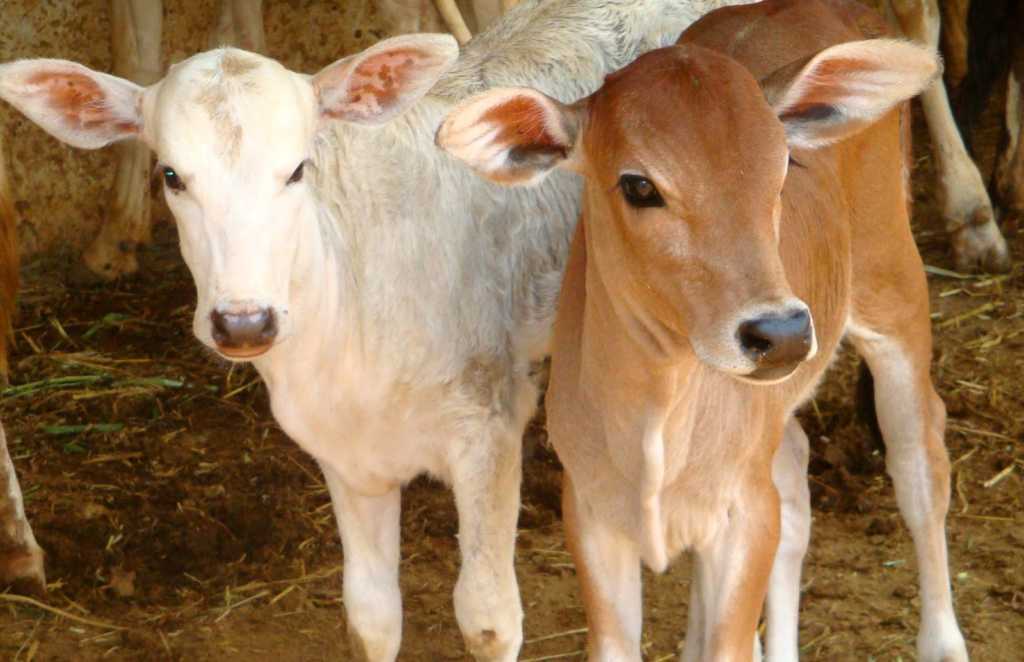Uttar Pradesh was one of the earliest states in India to ban cow slaughter. The Uttar Pradesh Prevention of Cow Slaughter Act was enacted way back in 1955. This Act prohibits and prevents the slaughter of cow and its progeny (Bull, bullock, calf etc) in Uttar Pradesh. The act says,
“No person shall slaughter or cause to be slaughtered, or offer or cause to be offered for slaughter, a cow, bull or bullock in any place in Uttar Pradesh, anything contained in any other law for the time being in force or any usage or custom, to the contrary notwithstanding”
Unfortunately, even after more than six decades of enacting this law, Cow Slaughter is still one of the major issues in the state. Unauthorized slaughter houses, rampant corruption, unrestrained cattle-smuggling and political patronage are few of the reasons why illegal Cow slaughter industry of Uttar Pradesh has flourished and prospered.
BJP in his Sankalp Patra had promised for immediate shutdown of slaughter houses in the state including the mechanized ones which are operated under license. Now, with Yogi Adityanath coming at the helm of power, the state is hoping to see an extraordinary dip in cow slaughtering. However, the roadmap to achieve the same is not easy. The state government needs to work on following areas to ensure the complete ban on cow slaughter:
- Revamp the old slaughter act: The old slaughter act has numerous caveats and loopholes. The section 3 of the act permits the slaughter of cows which are certified by the state government. Supreme court of India while hearing the petition against the complete ban of Cow slaughter in 2005 had famously said that “Cow dung is costlier than Kohinoor” and upheld the Gujarat law banning the slaughter of all bovines, useful or not. Following that Maharashtra and Haryana have enacted such laws.
Moreover, the penalty clauses in the old law are minimal. The more rigorous penalty clauses, maximum amounting to life imprisonment, should be considered in the lines of Gujrat.
The clauses such as import of cow meat in sealed container complicate the justice delivery process. Hence, these should be removed from the act.
- Special task force: The widespread bribery to the policemen by illegal slaughterhouses can’t be stopped overnight. A special task force needs to be set up to deal with this. The top-down transfer of accountability with focused approach will help in zeroing down on the illegally operating slaughterhouses and putting the responsible person behind the bars.
- Containing cattle smuggling to Bangladesh: The illegal movement of cows via land and water to Bangladesh is growing from bad to worse. Uttar Pradesh serves as the central warehouse for these smuggling. Cattles from northern states such as Rajasthan & Haryana are transported in rail wagons in Uttar Pradesh and these are sent to the border states of west Bengal, Assam, and Meghalaya along with the state’s cattles. This back marketing of cattle smuggling generates 10,000 crores for the smugglers of the state. The state govt needs to tighten its noose over the sale of cattle by moving a separate bill for prevention of cow smuggling.
- Differentiating the type of Beef: Beef is a generic term used for both cow/buffalo meat. Last year India became the largest exporter of the beef with the maximum contribution from Uttar Pradesh. Amidst the suspicion of growing share of Cow meat in beef export, Central govt has decided to put labs to detect cow meat on ports. In the similar lines, the state govt should set up the labs in suspected areas to do the random sampling of slaughtered meat.
In conclusion, if the constitution of India permits the law of the state to ban cow butchering and if the state has enacted the law six decades ago, the ‘like’ and ‘dislike’ of the cow slaughter becomes non-relevant. The state govt mechanism should work in full force to prevent cows getting butchered on the streets of Uttar Pradesh.
